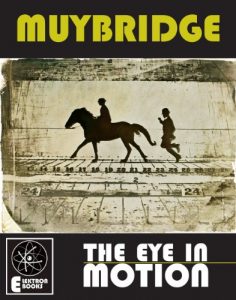All contemporary visual culture can be traced directly back to the work of Eadweard Muybridge (1830-1904), whose prolific and inspirational experiments in moving-image photography, animation and projection shattered the boundaries of how images and human bodies are perceived. Muybridge’s work had a pivotal twentieth-century influence on artists such as Francis Bacon, but that work’s impact is only now being fully experienced in the era of digital culture. Muybridge’s work is powered by an extreme obsessionality, excess and itinerancy that enabled him to negate all preconceptions and to re-conceptualise from zero the dynamics of corporeal and urban forms. Above all, Muybridge envisioned the origins of cinema, by creating a moving-image projector – the Zoopraxiscope – for his sequences of human and animal movement, and by constructing the first identifiably cinematic space for his images’ projection to spectators. In this innovative and ground-breaking book, based on extensive primary research into Muybridge’s personal archive and projection-devices, Stephen Barber analyses his work principally through the extraordinary medium of Muybridge’s own Scrapbook: a multi-dimensional and unprecedented ‘memory-book’, created in the final years of his life, which illuminates both the preoccupations behind his role in cinema’s origins, and his work’s seminal prefiguring of the digital world.
This site is safe
You are at a security, SSL-enabled, site. All our eBooks sources are constantly verified.






